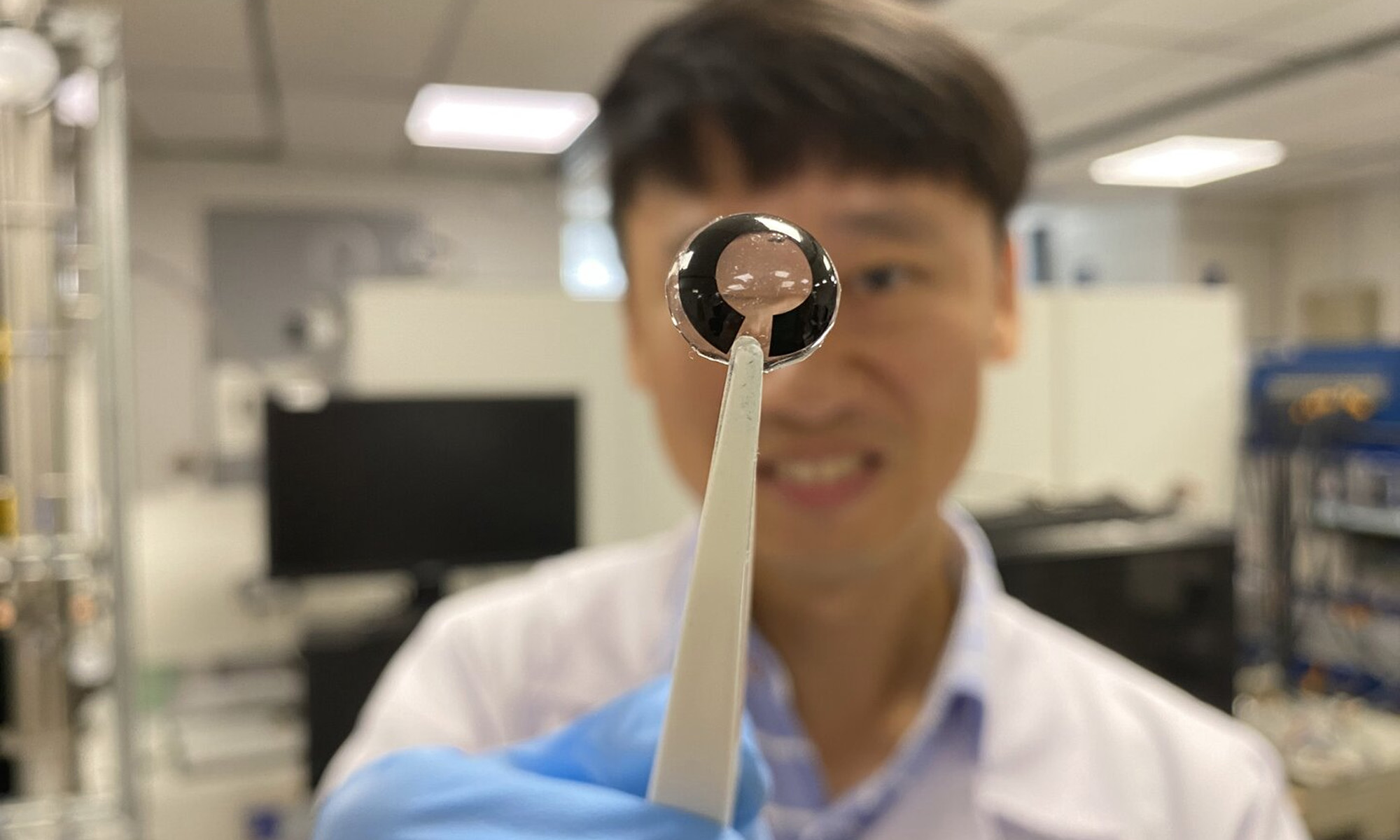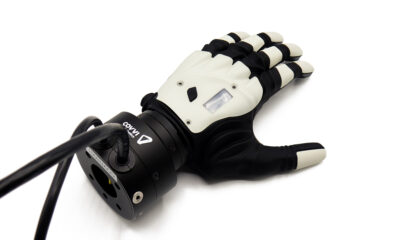News
Meet The Smart Contact Lenses Powered By Tears
Researchers in Singapore have revolutionized the humble contact lens with self-charging smart capabilities.

Contact lenses have been used to successfully correct vision for decades, but recently, they’re beginning to evolve into something much more interesting.
Researchers from the Nanyang Technological University (NTU) in Singapore have developed a tiny micrometer-thin battery that can power futuristic smart contact lenses that rely on the wearer’s tears for power.
Although smart contacts are nothing new, most attempts so far have relied on thin batteries with tiny induction coils and wires. Obviously, these metal parts aren’t ideal for a device that sits directly on the wearer’s eye, so an NTU School of Electrical and Electronic Engineering (EEE) research team led by Lee Seok Woo has been working on something better.
According to a press release, the NTU team’s battery uses biocompatible materials coated with a glucose-based layer. The coating reacts with the sodium and chloride ions present in the battery to generate electricity. Since both sodium and chloride ions are also found in tears, the smart lens battery can also be recharged while in use with no additional effort from the wearer.
Speaking about the research, Lee Seok Woo said, “This research began with a simple question: Could contact lens batteries be recharged with our tears? Previous techniques for lens batteries were imperfect, as one side of the battery electrode was charged, and the other was not. Our approach can charge both electrodes of a battery through a unique combination of enzymatic reaction and self-reduction reaction”.
Also Read: Social Media Addiction Is Greatly Impacting Arab Youth
According to the NTU team, the lenses should be good for a full day of use, and can also be placed in a special solution that keeps the battery charged. “By combining the battery and biofuel cell into a single component, the battery can charge itself without the need for additional space for wired or wireless components. Furthermore, the electrodes placed at the outer side of the smart contact lenses ensure that the eye’s vision cannot be obstructed”.
The NTU scientists are already working on boosting the amount of electricity the lens battery can deliver. Their research has been published in the journal Nano Energy, and they’re also in the process of partnering with contact lens producers to bring the technology to the market.
News
Rabbit Expands Hyperlocal Delivery Service In Saudi Arabia
The e-commerce startup is aiming to tap into the Kingdom’s underdeveloped e-grocery sector with a tech-first, locally rooted strategy.

Rabbit, an Egyptian-born hyperlocal e-commerce startup, is expanding into the Saudi Arabian market, setting its sights on delivering 20 million items across major cities by 2026.
The company, founded in 2021, is already operational in the Kingdom, with its regional headquarters now open in Riyadh and an established network of strategically located fulfillment centers — commonly known as “dark stores” — across the capital.
The timing is strategic: Saudi Arabia’s online grocery transactions currently sit at 1.3%, notably behind the UAE (5.3%) and the United States (4.8%). With the Kingdom’s food and grocery market estimated at $60 billion, even a modest increase in online adoption could create a multi-billion-dollar opportunity.
Rabbit also sees a clear alignment between its business goals and Saudi Arabia’s Vision 2030, which aims to boost retail sector innovation, support small and medium-sized enterprises, attract foreign investment, and develop a robust digital economy.
The company’s e-commerce model is based on speed and efficiency. Delivery of anything from groceries and snacks to cosmetics and household staples is promised in 20 minutes or less, facilitated by a tightly optimized logistics system — a crucial component in a sector where profit margins and delivery expectations are razor-thin.
Despite the challenges, Rabbit has already found its stride in Egypt. In just over three years, the app has been used by 1.4 million customers to deliver more than 40 million items. Revenue has surged, growing more than eightfold in the past two years alone.
Also Read: Top E-Commerce Websites In The Middle East In 2025
CEO and Co-Founder Ahmad Yousry commented: “We are delighted to announce Rabbit’s expansion into the Kingdom. We pride ourselves on being a hyperlocal company, bringing our bleeding-edge tech and experience to transform the grocery shopping experience for Saudi households, and delivering the best products – especially local favorites, in just 20 minutes”.
The company’s growth strategy avoids the pitfalls of over-reliance on aggressive discounting. Instead, Rabbit leans on operational efficiency, customer retention, and smart scaling. The approach is paying off, having already attracted major investment from the likes of Lorax Capital Partners, Global Ventures, Raed Ventures, and Beltone Venture Capital, alongside earlier investors such as Global Founders Capital, Goodwater Capital, and Hub71.
























